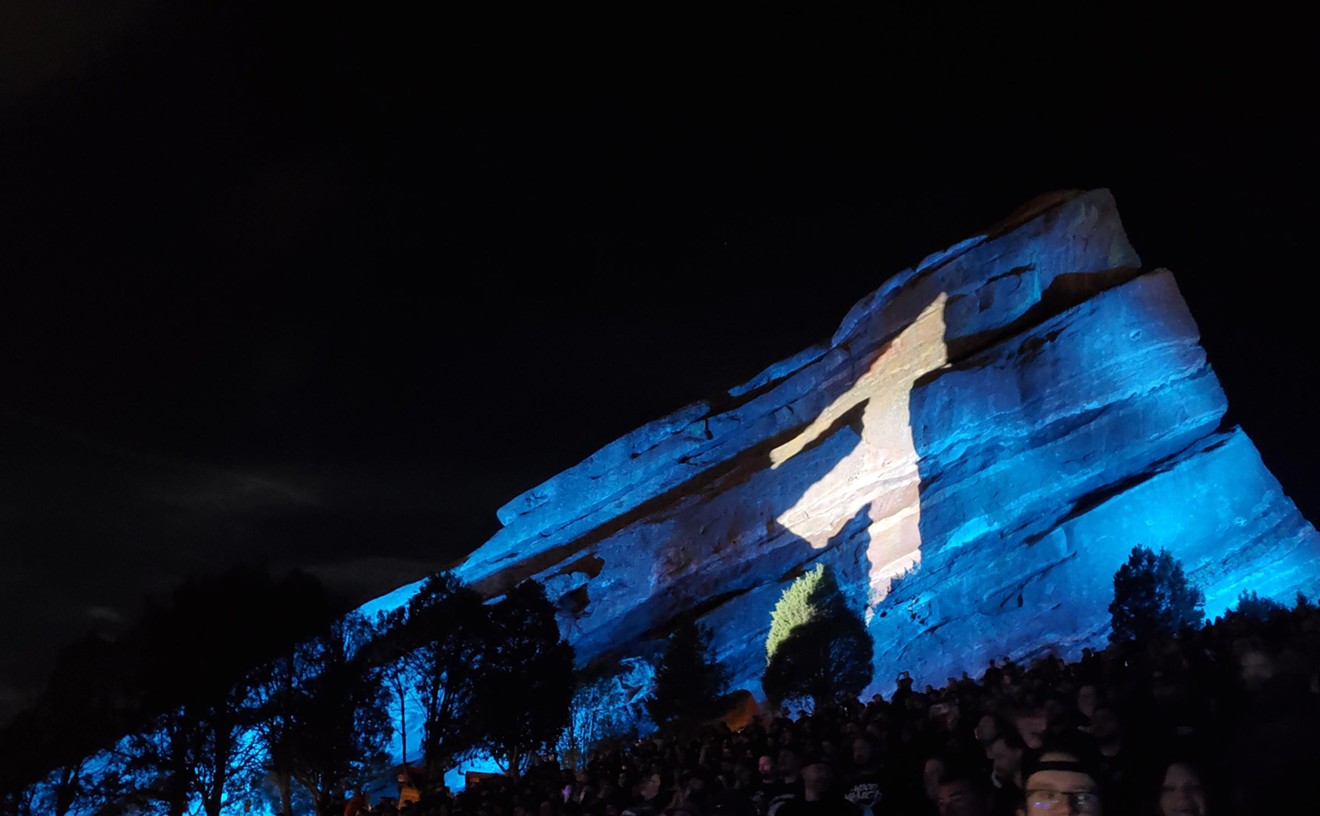A pioneer of what was once called “art rock” and “progressive rock,” Yes has cast a long shadow on development of any rock music that dares to incorporate literature, high art, futuristic ideas and unadulterated creativity unbound by everyday concerns. Along with contemporaries King Crimson, Curved Air, Emerson, Lake & Palmer, Jethro Tull and Genesis, Yes unabashedly threaded elements of improvisational jazz, classical music, psychedelia and traditional music into its adventurous rock music. If you include the movement's German counterparts, such as Kraftwerk, Neu!, Faust, Can, Tangerine Dream and Cluster, it has to be counted as the most commercially successful experimental music ever made.
Yes and its prog brethren garnered a reputation for over-intellectualizing music and possessing rigid musical chops. After all, the 1973 album Tales From Topographic Oceans, which Yes is performing in part during its current tour, was a double album with each side containing a single song. A quick listen to any of Yes's classic material reveals a band that indeed made complex music but whose end goal for each song seems to be to create an emotional space for listeners, who don't need to fully appreciate the technical nuts and bolts of the music.
By 1980, the fortunes of prog rock were waning, whether or not punk rock was rendering it obsolete. Jon Anderson and Rick Wakeman left Yes to pursue other musical interests that year, and the remaining members of the band recruited new musicians to continue the project. Around that time, the Buggles, a talented pop-rock band, were making waves, and vocalist and producer Trevor Horn and keyboard player Geoff Downes were approached to join Yes. The late Yes bassist Chris Squire had heard The Buggles' 1980 album The Age of Plastic and was a fan. Horn and Downes were involved in the songwriting that became the neglected but excellent 1981 album Drama and the subsequent tour, after which Yes went on hiatus.
The Buggles are perhaps most famous for their 1979 song “Video Killed the Radio Star,” the first music video to air on MTV when that station went live on August 1, 1981. It's easy to forget there is real conceptual heft behind the song three and a half decades hence.
“I think [Trevor Horn got] the original inspiration to the lyric from a J.G. Ballard story called 'The Sound-Sweep,' about this kid who used to go around the sound studios sweeping up the sound,” says Downes. “There were a lot of references from that in there, but at the same time, the whole thing was inspired more so by how technology changes people's perception of art and music. The silent movies were completely different from when the [talkies] came in. It was more a comment on how things change in that respect rather than specifically being about video getting rid of people on the radio. It was fairly prophetic in many ways, because when you get someone who's a really good radio presenter, it doesn't really work when they go on TV.”
The Buggles dissolved in 1981, but they still perform occasionally, featuring founding member Downes; Carl Palmer of Emerson, Lake & Palmer; Steve Howe of Yes; and John Wetton of King Crimson, Roxy Music and Asia, whose songs "Heat of the Moment" and "Only Time Will Tell" also became international hits with popular videos on MTV.
“I think the other guys, like Carl being in [ELP] playing all this heavy stuff, Steve [from Yes] and John from King Crimson — they were looking to play something very different,” says Downes. “When I came in, I didn't have that kind of a background, particularly. I was from a more pop-rock world. I think they kind of met me in the middle.”
As fate would have it, Downes only played with Yes for roughly one year, from 1980 to 1981, touring only for the Drama album. Then Anderson returned, and Yes enjoyed a second wave of popularity in the later '80s. But when Yes was writing music for its 2011 album Fly From Here, it brought in some musical ideas from thirty years prior and asked Downes to return to the band — and he's been back ever since. For its current tour, Yes will be performing selections from Tales From Topographic Oceans and Drama in their entirety, giving Yes fans a chance to see Downes's keyboard wizardry for the underappreciated album as well as a bona fide classic in long form.
Yes: The Album Series – Drama and Tales From Topographic Oceans, Wednesday, August 24, 8 p.m., Paramount Theatre, 303-623-0106, tickets start at $49.50, all ages.
[
{
"name": "Air - MediumRectangle - Inline Content - Mobile Display Size",
"component": "12017618",
"insertPoint": "2",
"requiredCountToDisplay": "2"
},{
"name": "Editor Picks",
"component": "17242653",
"insertPoint": "4",
"requiredCountToDisplay": "1"
},{
"name": "Inline Links",
"component": "18838239",
"insertPoint": "8th",
"startingPoint": 8,
"requiredCountToDisplay": "7",
"maxInsertions": 25
},{
"name": "Air - MediumRectangle - Combo - Inline Content",
"component": "17261320",
"insertPoint": "8th",
"startingPoint": 8,
"requiredCountToDisplay": "7",
"maxInsertions": 25
},{
"name": "Inline Links",
"component": "18838239",
"insertPoint": "8th",
"startingPoint": 12,
"requiredCountToDisplay": "11",
"maxInsertions": 25
},{
"name": "Air - Leaderboard Tower - Combo - Inline Content",
"component": "17261321",
"insertPoint": "8th",
"startingPoint": 12,
"requiredCountToDisplay": "11",
"maxInsertions": 25
}
]











